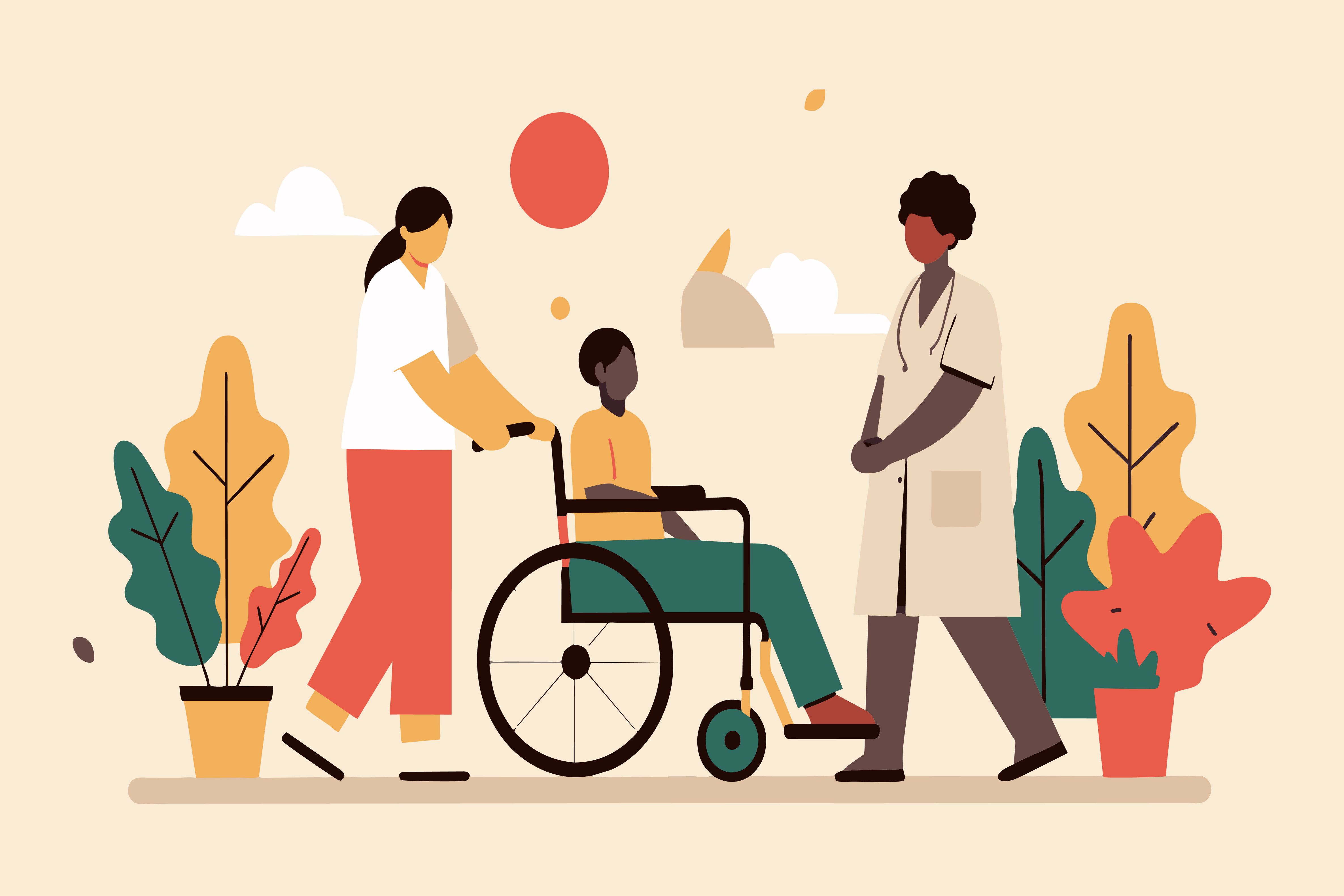Reimagining a Care Partner Program for Persistent Critical Illness Using Community Participatory Methods

Background
Care partners are individuals chosen by a person with an illness to support their care during hospitalization. Patients with persistent critical illness have longer than average critical care admission and often multiple comorbidities and iatrogenic complications including deconditioning, dysphagia, and the need for an advanced airway with prolonged mechanical ventilation. Despite knowledge that family presence has been identified as important for patients experiencing persistent critical illness, the roles, experiences, and needs of care partners in this patient population has not been fully characterized, particularly from the perspectives of patients, family or carer, and health care providers.
Project
This multiple stage project has the overall aim of using community participatory methods including co-design to reimagine a care partner program for clinical settings where adult patients with persistent critical illness are cared. Specifically, the aims were to describe the reported roles of care partners, the impact of care provision during persistent critical illness, and barriers to and facilitators for implementing a care partner program in this setting from the perspectives of patients, carers, and health care providers.
This multiple stage project used qualitative descriptive methodology including semi-structured interviews (n = 30) and content analysis. The first stage included interviews with patient survivors (n = 7), care partners of patient survivors (n = 9), and the second stage included interviews with professionally diverse health care providers (n = 14) of adult patients with persistent critical illness from two specialized units in one community academic hospital in Toronto, Canada. Stage three will be a community-based co-design project that includes care partner community agency members, people with lived experience, and professionally diverse health care providers. In this final stage a series of co-design meetings will be held to synthesize results from phases one and two with the aim to provide recommendations for reimagining care partner programs in these clinical settings that can be shared regionally.
Participants across all groups described physical, mental health, cognitive, social, and spiritual roles to support of the patient, including the perceived role of safeguarding the multiple dimensions of care for the patient who is experiencing persistent critical care in ICU and specialized care settings. Patient and care partner participants also described numerous physical, mental health, and social stressors associated with care provision during their loved ones’ hospitalization along with some protective strategies, with implications that extend beyond discharge from hospital. Participants reported barriers and facilitators to implementing a care partner program spanned the domains of the Social Ecological Model.
A multiple stage community co-design approach was used to explore experiences and make recommendations for the creation of successful and sustainable care partner programs in clinical settings where the care of patients with persistent critical illness occurs.
Research Team
- Dr. Laura Istanboulian, Assistant Professor, Daphne Cockwell School of Nursing (DCSN), Toronto Metropolitan University; Michael Garron Hospital, Canada
- Dr. A. Gilding, Michael Garron Hospital, Toronto East Health Network, ON, Canada
- Dr. L. Hamilton, Michael Garron Hospital, Toronto East Health Network, ON, Canada
- Dr. T. Lin, Michael Garron Hospital, Toronto East Health Network, ON, Canada
- Dr. K. Quimson-Yeung, Michael Garron Hospital, Toronto East Health Network, ON, Canada
- Dr. T. Master, Michael Garron Hospital, Toronto East Health Network, ON, Canada
- Dr. S. Bingler, Michael Garron Hospital, Toronto East Health Network, ON, Canada
- Dr. M. Hill, Michael Garron Hospital, Toronto East Health Network, ON, Canada
- Dr. S. Isani, Michael Garron Hospital, Toronto East Health Network, ON, Canada
- Dr. S. Kazi, Michael Garron Hospital, Toronto East Health Network, ON, Canada
- Dr. S. Coppinger, Michael Garron Hospital, Toronto East Health Network, ON, Canada
- Dr. K. Smith, Institute of Health Policy, Management, & Evaluation, Dalla Lana School of Public Health, University of Toronto; Michael Garron Hospital,Toronto East Health Network, ON, Canada
- Dr. Karen Soldatić, Canada Excellence Research Chair in Health Equity and Community Wellbeing, Toronto Metropolitan University, ON, Canada
Funding
- This work is funded in part by the Michael Garron Hospital TD Health Community Solutions Fund, the Michael Garron Hospital Foundation, and Seed Funding from Faculty of Community Services at Toronto Metropolitan University. Additional support has been provided by the Canada Excellence Research Chair - Health Equity & Community Wellbeing research program.
Period
- 2023 -2025